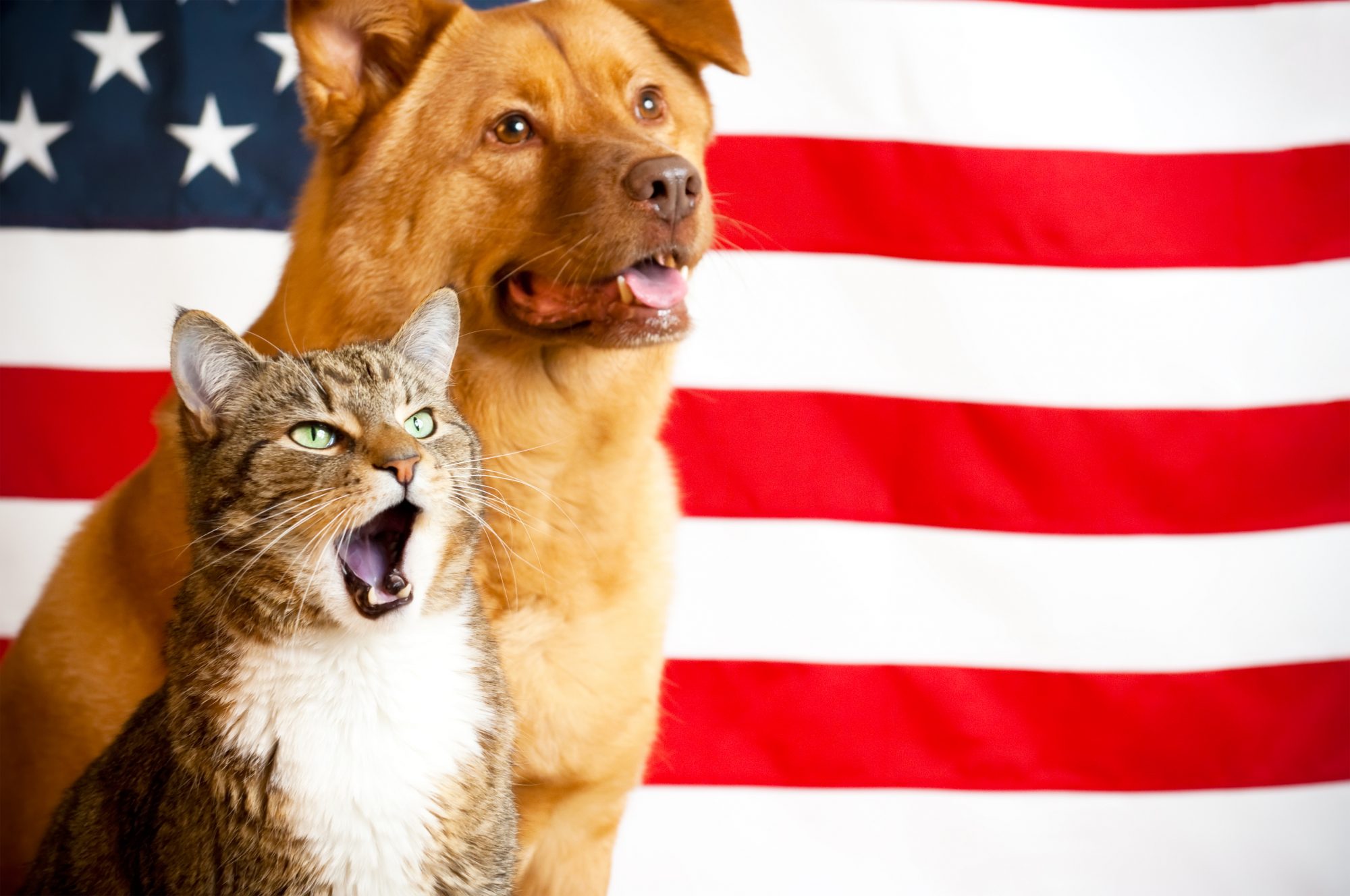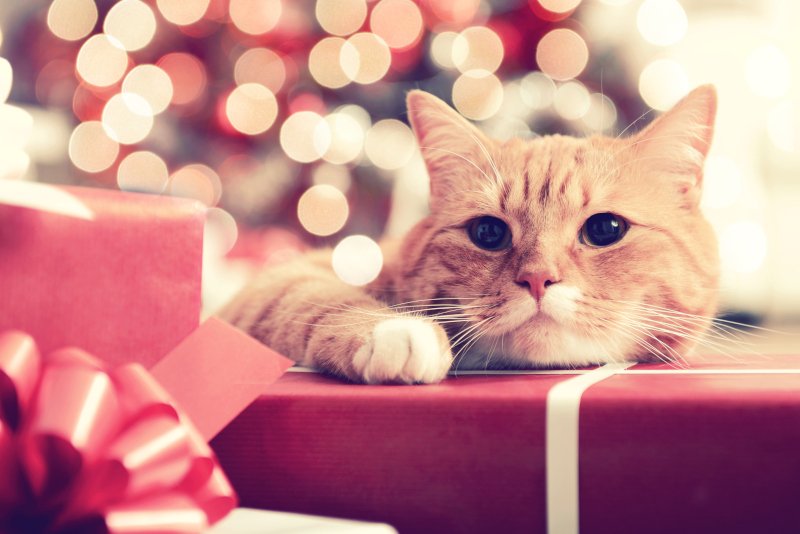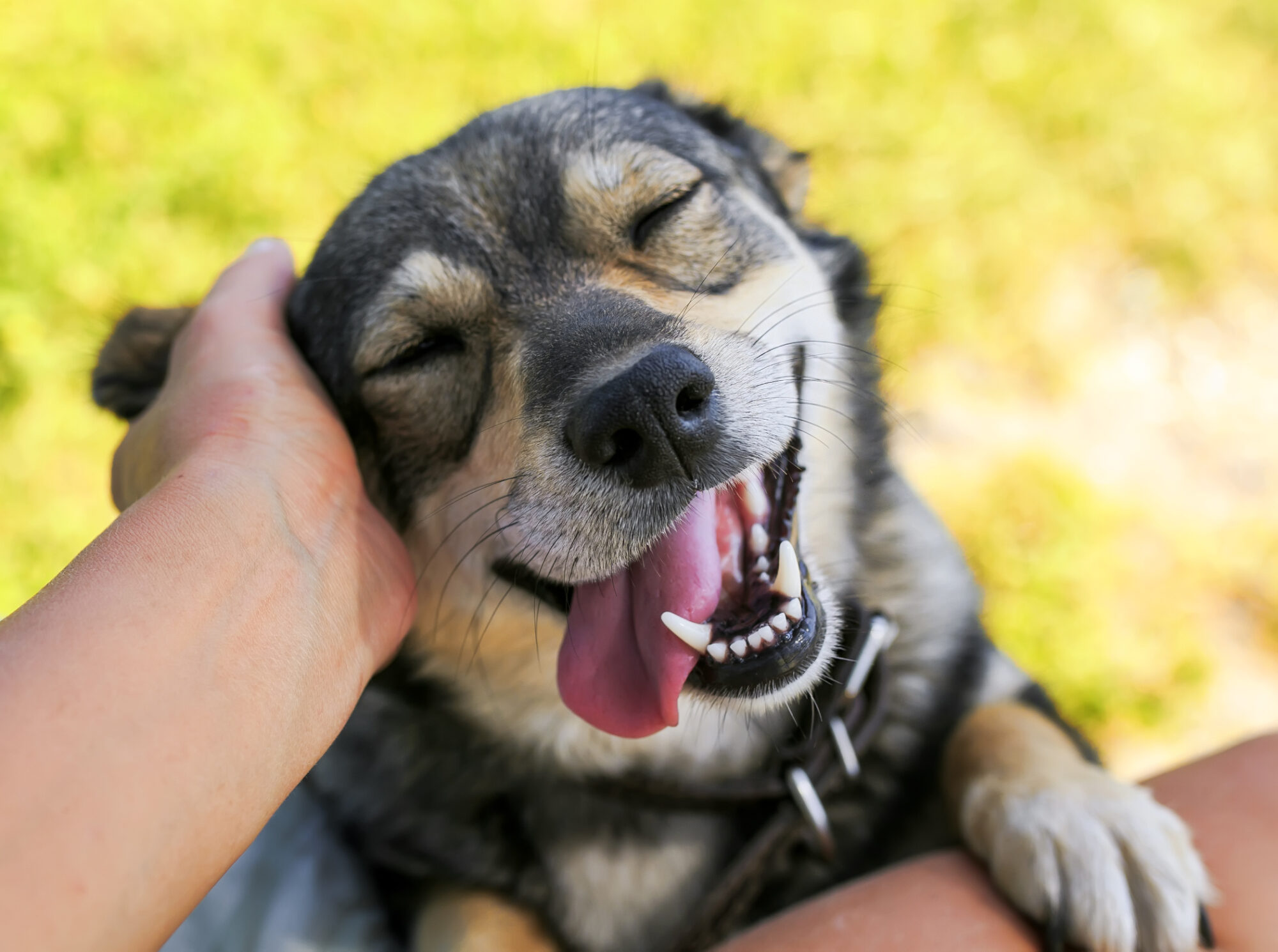
The Fourth of July often means backyard parties and BBQs, friends and family, and fireworks. It’s natural to want to include our pets in the celebration, but for them, these same events might mean anxiety, fear, and even a pet medical emergency. Here, we share a few simple tips to keep your pets safe this holiday.
Planning for the Fourth of July
According to the American Humane Society, the day after July 4th is the busiest day of the year for animal shelters, which take in hundreds of lost pets who have escaped their yards trying to get away from fireworks noise. With a little planning and preparation, you can help avoid this for your pet family.
These tasks all need to happen well in advance of the day, so give yourself plenty of time to prepare.
- All pets should wear their collar or harness and ID tags, with your correct contact information.
- If your pet doesn’t have a microchip, call us to talk about having one placed. A microchip is your pet’s best chance of reuniting with you should they become lost.
- If your pet has a chip already, check to make sure it is registered with your current contact information.
- Walk your yard and make sure it is secure. If your neighbors set off fireworks unexpectedly, will your pets be able to escape? Make any necessary repairs.
- Consider investing in a pet anti-anxiety body wrap, such as a Thundershirt. These wraps provide steady, calming pressure which can help your pet to relax in stressful situations.
- If you know your pet has a serious noise aversion, or you’re concerned about destructive behavior, call us. A referral to a veterinary behaviorist could help your pet to conquer their fear. Your veterinarian may also prescribe anti-anxiety medication to be given on and around the Fourth of July.
Keeping Your Pet Safe On The Fourth of July
Veterinary staff and emergency clinics know that the Fourth of July is one of the busiest days of the year for pet emergencies. To avoid spending the day at the emergency clinic, take these precautions with your pets.
Leave them at home. It may be tempting to take your dog along for the day, but the risks of them running away, getting burned, or ingesting toxic foods and ending up at the veterinary emergency clinic isn’t worth the risk. The safest place for pets on July 4th is indoors, at home.
Create a quiet space. Make a safe haven for your pet with their crate, a small bedroom, laundry room, or even a bathroom. Fill your pet’s quiet space with soft blankets, their favorite toy, and a white noise machine or soft music to block out loud noises. Visit your pet often to offer comfort and love if you’re home.
Keep them distracted. Fill a KONG with your pet’s favorite treat, freeze for a few hours, and give it to them before the fireworks or parties start. Licking and chewing release endorphins which can help keep your pet calmer. Check on your pet often any time they have a treat or chew toy.
Let guests know the rules. You may know that even a bite of bratwurst can make your pet sick, but make sure your guests know the rules when it comes to your pets. Leave signs on any doors or gates to make sure everyone remembers to keep them closed.
Avoid burns, poisoning, and trauma. Each year, veterinary emergency clinics treat pets with mouth, nose, or paw burns as a result of fireworks. Fireworks get very hot very quickly, and pets can be seriously injured by “investigating” live fireworks as well as by spent cartridges on the ground. In addition to burns, the chemicals contained in fireworks can be extremely toxic, even lethal, to pets. Prevent your pets from chasing lit sparklers or any other fireworks, and make sure any fireworks are out of pets’ reach at all times.
Prevent tummy problems. Those puppy-dog eyes are hard to resist, but avoid giving your pet human food or BBQ treats from the grill. Certain people-only foods such as alcohol, chocolate, onions, grapes, and raisins are toxic to pets. Foods that your pet is not used to eating can cause gastrointestinal upset and pancreatitis. Bones can splinter or get lodged in your pet’s intestines, requiring surgery to remove. Avoid a pet emergency and stick to your pet’s regular diet.
Monitor sun exposure. Although it’s not overly warm yet, it’s always smart to limit sun and heat exposure for your pets. Too much sun and heat exposure can cause heat exhaustion or heat stroke, both serious and life-threatening conditions. Signs of heat stroke include red or blue gums, excessive panting, restlessness, and a staggering gait. Limit exercise to the cooler parts of the day, offer continuous access to shade, and provide fresh, cool water at all times. Never leave your pet in a parked car, even in seemingly safe weather.
The Fourth of July is a wonderful holiday, full of fun and celebration. Keep your pets safe and sound by following these tips, and call us with any questions and concerns.


 Schedule an Appointment
Schedule an Appointment
